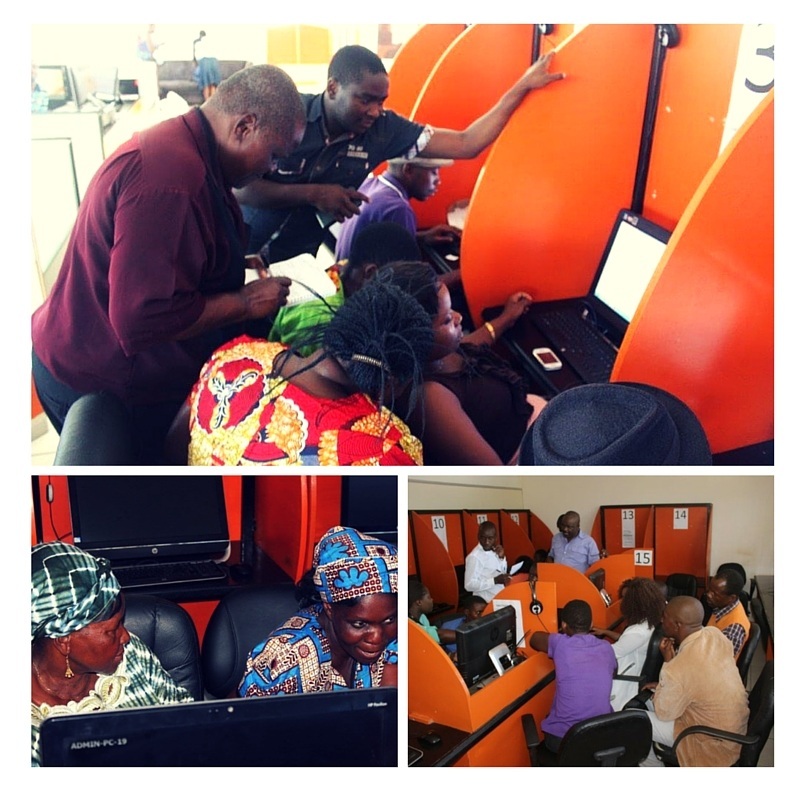
The need for skills in gathering diamond data has always been a great necessity for poor, relocated and disinherited communities in Manicaland Province in Zimbabwe, a border province about 400 kilometres from the capital Harare. Manicaland is the country’s wealthiest province in term of diamond revenue. On Friday 26 February 30 community members who have been greatly affected by the emergence of the mining industry in their region, and being under the auspices of the Marange Community Development Trust (MDT) and the Arda Transau Relocation Development Trust (ATDRT), participated in a practical data extraction training workshop conducted in collaboration with the Zimbabwe Environmental Law Association (ZELA), a public interest law organisation that is affiliated to Publish What You Pay. The exercise was carried out in an internet café in Mutare, the Manicaland provincial capital. This exercise occurred despite the tension in the region as a result of an announcement by the Zimbabwe government that all diamond mining companies in the area, save for Marange Resources were to stop mining, a commendable but security-tense move towards nationalisation.
MDT and ATDRT are community trusts, registered by ZELA. The former operates in the diamond mining regions of Marange, advocating for the rights of the community in whose area diamonds are being extracted. The later represents those communities who were relocated from their original homes after diamonds extraction began in 2006-7 and they were moved to state-land managed by the Agricultural Rural Development Agency’s (ATRDT) at Transau. In addition to the participants from community development trusts, there were also members of school development committees, health centre committees and ward development committees from the same areas. There involvement was crucial since these committees are strategic for gaining data on the extent of extractive-industries contribution to service delivery for the communities impacted by mining.
The data-extraction workshop was carried out under the Transparency, Responsive, Accountable Citizen Engagement (TRACE) project. In the course of the workshop, each of the community members went through the process of accessing diamond related information on the internet. They went through the Kimberly Process website and sourced information on the years 2009-2012 from the Kimberly Process Annual Reports . The information centred on diamond production levels during these years, measured in carats as well as the production value based in United States dollars; information in US dollars was easier for the community members to grasp because the green back has been one of Zimbabwe’s official currencies since 2008.This data was extracted into excel tables by the community members through the guidance of ZELA staff and other community members. With the information, the communities then went through a comparative process, this time with data extracted from the Minerals Marketing Corporation of Zimbabwe (MMCZ) website .
The participants highlighted renewed awareness on the discrepancies that exist between information being provided by government agencies like MMCZ and the information with international monitoring bodies like the Kimberly process, for instance. In the analysis during the training it was found that there were great differences between the diamond export value on the KP website and the same item (export value) for the same years in the MMCZ annual report. The training and practical data -extraction exercise managed to arm the directly affected community members with the knowledge to embark on data-driven advocacy as well as being factual in their campaigns and activism. Furthermore, the training was an important and strategic event in light of recent developments in the Manicaland diamonds region, where moves towards nationalisation of the diamond mines being spearheaded by Zimbabwe’s Ministry of Mines and Mining Development.
The data extraction exercise will continue to be carried out. In social media this will be done through a social media hashtag #OpenDataZim as well as joint campaigns with other institutions, journalists and community based organisations. ZELA has already sought the collaborations of other Manicaland-based extractives organisations such as the Manicaland Small Sale Miners Association, the Centre for Natural Resource Governance (CNRG), Centre for Research and development (CRD) as well as the Natural Resources Dialogue Forum and Members of parliament from the area.